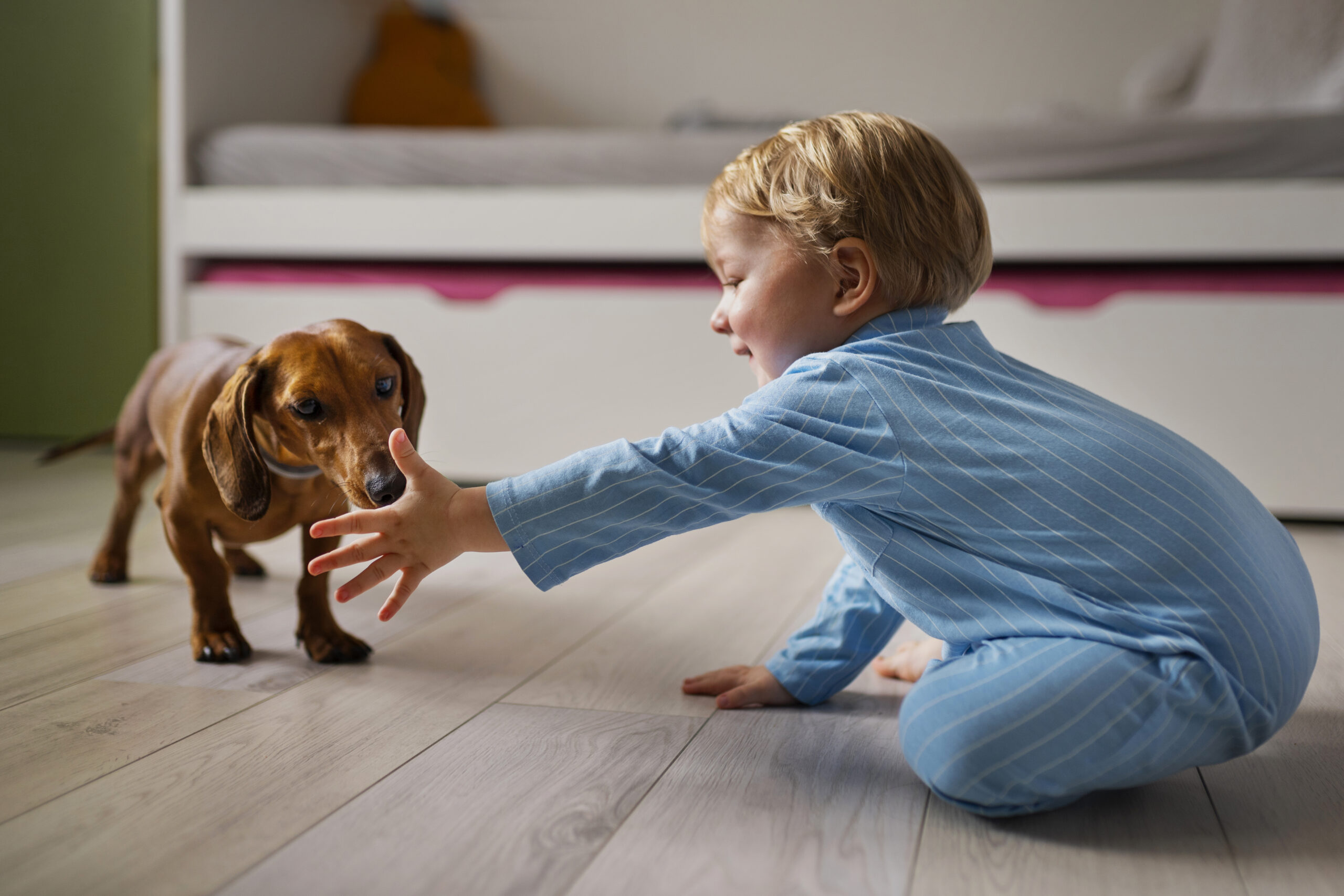Ever noticed how puppies thrive in environments where they know what to expect? This isn’t just by chance; a structured routine provides a sense of stability and security. By understanding what comes next, puppies are less likely to develop anxiety-related behaviors.
Historically, dog trainers have emphasized the importance of early routine setting, and with good reason. Studies indicate that puppies in structured environments exhibit 20% faster learning times. This consistency fosters better socialization skills, leading to a well-behaved and confident adult dog.
Puppies benefit from structured routines early as they provide stability, reduce anxiety, and improve behavior. Consistent schedules for feeding, exercise, and training help puppies understand expectations, leading to faster learning and better socialization skills. This foundation supports their mental and emotional development into well-adjusted adult dogs.
Why Puppies Benefit From Structured Routines Early
Structured routines offer puppies a predictable environment, which can reduce stress and anxiety. Knowing when to eat, play, and sleep helps them feel secure. This stability fosters their mental and emotional development, creating a strong foundation for future behavior.
Consistency in routines supports better training outcomes. Puppies learn commands and house rules more quickly when they know what to expect. Over time, this leads to well-mannered and confident adult dogs, ready to handle various situations.
Early routines also enhance socialization skills. Puppies who follow a structured schedule are more likely to interact positively with other dogs and humans. Frequent exposure to different experiences in a controlled manner builds trust and reduces fear.
Here’s what a typical puppy routine might include:
- Feeding times at regular intervals
- Dedicated playtime and exercise
- Scheduled nap times for rest
- Consistent training sessions
- Regular potty breaks
This predictable structure helps puppies understand their world better, making them happier and healthier.
The Psychological Impact of Routines on Puppy Development
Routines play a crucial role in a puppy’s psychological development. They provide a sense of predictability that makes them feel safe. This feeling of security allows puppies to explore their environment more confidently.
Structured routines help puppies develop healthy habits. Regular feeding and sleeping schedules contribute to physical wellbeing. When puppies know what to expect, they are less likely to develop anxiety or stress-related behaviors.
Early routine setting fosters emotional stability. For instance, regular playtime helps channel their energy positively. Varied activities within a routine also stimulate mental growth and prevent boredom.
Some key components that positively affect a puppy’s psychological growth include:
- Consistent meal times
- Regular training sessions
- Predictable play and exercise periods
- Scheduled rest and sleep times
These elements together help puppies develop into well-adjusted, happy adult dogs.
Key Components of an Effective Puppy Routine
An effective puppy routine starts with consistent meal times. Feeding your puppy at the same time each day helps regulate their digestive system. It also sets expectations, reducing food-related anxiety.
Another essential component is play and exercise. Puppies need physical activity to burn off energy and stay healthy. Regular playtimes should be scheduled to keep them engaged and prevent destructive behavior.
Training sessions should also be a key part of the routine. Short, frequent training helps puppies learn commands and proper behavior. Consistency in training builds a strong foundation for future learning.
Lastly, rest and sleep are crucial for a puppy’s development. Scheduled nap times ensure they get enough rest to grow and stay healthy. A predictable bedtime helps them settle down easily at night, promoting better sleep.
Common Challenges in Establishing Routines for Puppies
One of the biggest challenges is dealing with a puppy’s boundless energy. Puppies often have unpredictable bursts of activity that can disrupt even the best-planned routines. This requires flexibility and patience from the owner.
Consistency is key, but it can be hard to maintain. Life’s unpredictability can make it tough to stick to a strict schedule. Skipping meals or playtimes can lead to confusion and anxiety in puppies.
House training is a particular challenge. Puppies need frequent potty breaks, often at inconvenient times. Missing these breaks can lead to accidents and setbacks in training.
Another issue is socialization within the routine. Balancing time for social interactions with other dogs and humans can be tough. Too little socialization can result in a shy or fearful puppy.
Adjusting routines for growth stages adds another layer of complexity. As puppies grow, their needs change. Owners must adapt routines to accommodate changes in diet, exercise, and training.
Success Stories: Transformations Through Routine
One success story involves a puppy named Max, who was struggling with anxiety. His owners implemented a structured routine with set meal times, play sessions, and training exercises. Over a few months, Max’s anxiety diminished significantly, and he became a confident, well-adjusted dog.
Another transformation tale features Bella, a high-energy pup initially prone to destructive behavior. By establishing a daily routine with regular exercise and mental stimulation, her behavior changed. Bella became calmer and more focused, reducing her destructive tendencies.
Lucky, a rescue puppy, had trust issues and was initially very shy. His new family introduced a steady schedule that included socialization activities. Regular interaction with other dogs and people within a structured environment helped Lucky build trust and become more outgoing.
These success stories share common elements:
- Consistent meal and playtimes
- Regular training sessions
- Balanced socialization activities
These routines helped transform anxious, hyperactive, and shy puppies into well-behaved, confident dogs.
Frequently Asked Questions
Here are some commonly asked questions about the benefits of structured routines for puppies. These questions cover various aspects that can help you better understand the importance of routine for your pet.
1. How often should I feed my puppy to maintain a structured routine?
Puppies typically require more frequent meals than adult dogs to support their growth. For young puppies, feeding four times a day is usually recommended. As they grow older, you can reduce this to two or three times a day.
Choosing set times for feeding helps your puppy develop a consistent eating schedule. This routine assists in regulating their metabolism and digestive system, making house training easier. Additionally, predictable feeding times can reduce overeating and associated health issues.
2. What are the benefits of scheduled playtime for puppies?
Scheduled playtime is crucial for a puppy’s physical and mental development. Regular play sessions help burn off excess energy, which can prevent behavioral problems like chewing and digging. It also promotes healthy weight and muscle development.
Moreover, playtime strengthens your bond with your puppy. These interactions provide opportunities for socialization, teaching your puppy how to behave around other dogs and humans. This leads to a more confident and well-adjusted adult dog.
3. Can a structured routine help in house training my puppy?
Yes, a structured routine is extremely helpful for house training. Regular potty breaks at set times teach your puppy when and where it’s appropriate to go. This consistency makes it easier for them to understand and follow house rules.
Routines also minimize the chances of accidents inside the house. When your puppy knows what to expect, they are less likely to get anxious and have accidents. Over time, this leads to effective house training and a cleaner home.
4. How do consistent training sessions benefit my puppy?
Consistent training sessions provide a sense of structure and predictability for your puppy. Short, frequent training helps reinforce commands and behaviors faster. This consistency reduces confusion and makes learning more efficient.
Training sessions also enhance your puppy’s focus and attention span. Puppies respond better to repetitive routines, which lead to a well-trained and obedient dog. It sets a solid foundation for advanced training and better behavior.
5. What should I include in a daily routine for my puppy?
A comprehensive daily routine for your puppy should include structured feeding times, play sessions, training periods, and nap times. Ensuring a balance between rest and activity is key to their overall well-being. Each element contributes to their physical, mental, and emotional development.
Don’t forget scheduled potty breaks as well. Consistent routines help puppies understand expectations and reduce stress. This routine will make your puppy feel secure and aid in their growth into a happy, healthy adult dog.
Conclusion
Implementing a structured routine for your puppy is crucial for their development. It provides a sense of security and predictability. This not only reduces anxiety but also encourages better behavior.
By following consistent schedules, you help your puppy grow into a well-adjusted adult dog. The benefits of early routine setting are evident in their improved socialization skills and faster learning. Ultimately, a structured routine sets the foundation for a happier, healthier life for your puppy.



